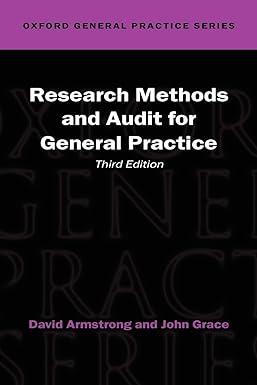Question
All standard costing methods use the predetermined overhead rate to apply factory overhead. This is based on an estimated amount that is calculated during the
All standard costing methods use the predetermined overhead rate to apply factory overhead. This is based on an estimated amount that is calculated during the budgeting process at the beginning of the year. Therefore, there will almost always be a variance between the factory overhead that is applied and the actual factory overhead that is accumulated. These variances should be a minimal amount, but may sometimes be material. Therefore, it is important that an accountant find the cause of the variance, so as not to repeat it. Determining the reasons for variances is an important part of the overall process of variance analysis. Certain causes are commonly attributed to specific variances. Match each reason on the left with the variance(s) it commonly creates. Each numbered item has one or more correct answer(s). Each lettered item may be used once, more than once, or not at all.
- A change in the quality of materials purchased
- A new supplier contract
- Error in the accounting records
- Change in proportion of spoiled materials
- Unreasonable standard
- Unanticipated overtime hours
- A change in the government-mandated minimum wage
- Equipment malfunction
- A change in average worker experience or training
All standard costing methods use the predetermined overhead rate to apply factory overhead. This is based on an estimated amount that is calculated during the budgeting process at the beginning of the year. Therefore, there will almost always be a variance between the factory overhead that is applied and the actual factory overhead that is accumulated. These variances should be a minimal amount, but may sometimes be material. Therefore, it is important that an accountant find the cause of the variance, so as not to repeat it. Determining the reasons for variances is an important part of the overall process of variance analysis. Certain causes are commonly attributed to specific variances. Match each reason on the left with the variance(s) it commonly creates. Each numbered item has one or more correct answer(s). Each lettered item may be used once, more than once, or not at all.
- A change in the quality of materials purchased
- A new supplier contract
- Error in the accounting records
- Change in proportion of spoiled materials
- Unreasonable standard
- Unanticipated overtime hours
- A change in the government-mandated minimum wage
- Equipment malfunction
- A change in average worker experience or training
A | Direct materials price variance |
B | Direct materials quantity variance |
C | Direct labor rate variance |
D | Direct labor efficiency |
Please use full paragraphs, and APA formatting, to explain why you made the connections that you did.
Step by Step Solution
There are 3 Steps involved in it
Step: 1

Get Instant Access to Expert-Tailored Solutions
See step-by-step solutions with expert insights and AI powered tools for academic success
Step: 2

Step: 3

Ace Your Homework with AI
Get the answers you need in no time with our AI-driven, step-by-step assistance
Get Started


